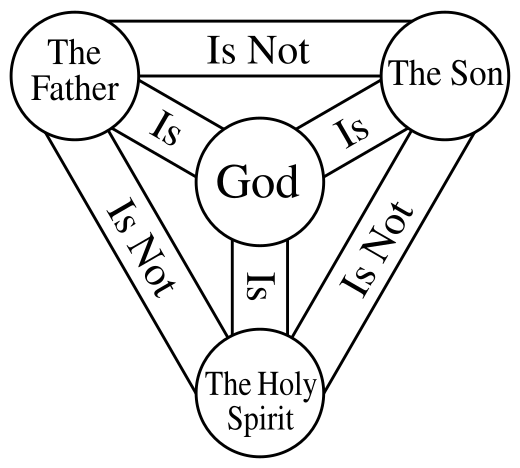denying the deity of Jesus before A.D. 200
I am thoroughly enjoying this work written in the early 300's, Eusebius Pamphilius: Church History, because human nature is so conserved over time. The church enjoys public favor then falls into disfavor resulting in persecution and death. The church enjoys unity then is divided by schismatics who think up all sorts of crazy theologies that tend to result in their own physical well-being and personal wealth.
I will quote from the 1965 Penguin Books version translated by G. A. Williamson. But I encourage the reader to refer to all the footnotes in the online CCEL version.

Recently, at the lunch time Bible study I belong to at work, our free flowing conversation, based on John 13, gravitated toward the deity of Jesus. Is he or isn't he God and if he is, how can there also be a God the Father, and God the Holy Spirit, but God can still be one? This mystery is solved as early as Tertullian, writing in North Africa, in the early 200's, maybe only 140 years after John wrote his gospel. It was later hammered out at the Nicene council, which I wrote about before. Basically, one substance, God, but three persons, or, "three who's and one what." Augustine makes a nice comparison of the Trinity to love. But one member of our group is thoroughly convinced that the Trinity is a heresy introduced by Constantine. He was on shaky ground, as we were reading John's gospel, which is tightly focused on the deity of Jesus. So I pointed to the numerous attempts by John to portray Jesus as God.
A few days later, I come across the same controversy around the time of Tertullian's writing about the Trinity, that even then, so close to the teachings of the apostles, still ringing in the ears of some, that others were denying the deity of Jesus. The first link, is to the subsection on this controversy. But I enjoy the appeals made at the time, in attempts to reason with the heretics.
I will quote from the 1965 Penguin Books version translated by G. A. Williamson. But I encourage the reader to refer to all the footnotes in the online CCEL version.
In a polemic composed by one of these against Artemon's heresy, which again in my own day Paul of Samosata has tried to revive, there is extant a discussion pretinent to the historical period under review. For the assertion of the heresy in question, that the Saviour was merely human, is exposed in this book as recent invention, because those who introduced it were anxious to represent i as ancient and therefore respectable. After adducing many other arguments to refute their blasphemous falsehood, the writer continues:They claim that all earlier generations, and the apostles themselves, received and taught the things they say themselves, and that the true teaching was preserved till the times of Victor, the thirteenth Bishop of Rome after Peter: from the time of his successor Zephyrinus the truth was deliberately perverted. This suggestions might perhaps have been credible if in the first place Holy Scripture has not presented a very different picture; and there are also works by Christian writers published before Victor's time, written to defend the truth against both pagan criticism and current heresies - I mean works by Justin, Miltiades, Tatian, Clement, and many more. In every one of these Christ is spoken of as God. For who does not know the books of Irenaeus, Melito, and the rest, which proclaim Christ as God and man, and all the psalms and hymns written from the beginning by faithful brethren, which sing of Christ as the Word of God and address Him as God?How then can it be true that when the mind of the Church has been porclaimed for so many years, Christians up to the time of Victor preached as these people say they did? And are they not ashamed to slander Bictor in this way, knowing perfectly well that it was victor who excommunicated Theodotus, the shoemaker, the prime mover and father of the God-denying apostasy, when he became the first to declare that Christ was merely human? If Victor regarded their views in the way their slanderous statements suggest, how could he have thrown out Theodotus, the inventor of heresy? pp. 235-236
So back then, 100 years before Constantine, it was Bishop Zephyrinus who was to blame. Eventually, the heretic runs out of time on who to blame. But they claimed a bishop as a supporter, Victor, who had ex-communicated the same type of heretics they were.
History comforts me. It tells me my experiences are not solitary nor unique. It tells me there is nothing new under the sun. It tells me, people are the same, age to age and perpetually in need of a God who desires to rescue them from their sins and ignorance and slaveries.




Comments